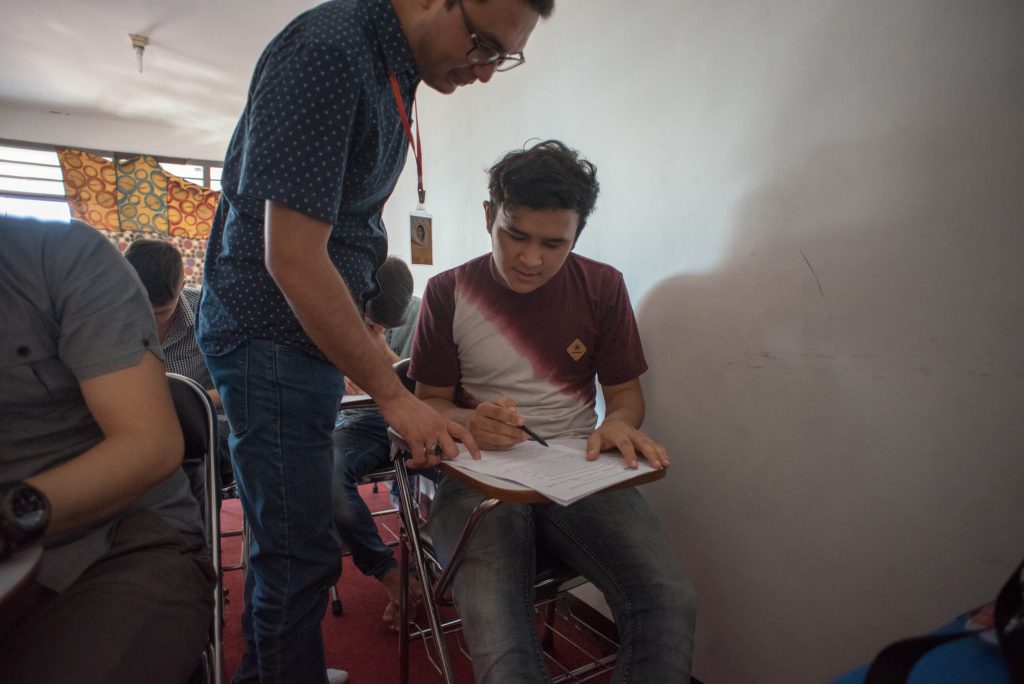The Refugee Entrepreneur: HELPing Those in Need
Ayushi writes about refugee Mohammad Baqir Bayani who started a refugee-run school in Indonesia to secure a bright future for those still awaiting resettlement.
As I speak to Mohammad Baqir Bayani on a zoom call, one thing becomes clear - he loves learning. “I don’t like to spend my day without learning. In that sense, every single day of this journey has been a learning for me. I have learned one lesson, or maybe one lesson for a couple of days over last four and a half years,” he said as he smiled through the screen.
His story from being a young Afghan refugee in Indonesia to co-founding HELP for Refugees, a community learning centre for refugees, hasn’t been an easy one. As an asylum-seeker, he couldn’t attend university or get a job in his transit country, Indonesia. “I was completely on my own yet without any freedom. But I was able to move out of my home, but that was not enough for me – I wanted to do something positive.”, he says.
One of the major issues that refugees face is the negative perception around them and the refugee crisis. To tackle this, Baqir started a ‘Humans of New York’ style project in 2016 with an Australian friend which he named Refugees of Indonesia. They started taking portrait pictures of refugees and interviewing them, writing their stories in English and sharing them with people online. It was so successful and they even managed to raise some money for refugees who were stuck in hospitals or were sleeping out on the streets.
 Baqir teaching a student at their learning centre. (Photo credit: Hairil Saleh)
Baqir teaching a student at their learning centre. (Photo credit: Hairil Saleh)Even though what he was doing with Refugees of Indonesia was satisfying, Baqir felt called to do something bigger, something to address the needs in the community. And who better to understand the needs of the refugee community than one of their own?
So, one night, he took a piece of paper and listed down all the challenges they were facing. While there were some problems he couldn’t do anything about, there were others he could help with through his abilities and network.
That was how Baqir started HELP for Refugees, a community of refugees dedicated to education and skills development, in 2017. For a year, Baqir worked on the idea - connecting with people, raising funds, building a foundation for the work. He believes that governments need to focus on academic and skills-based education for refugees. Because education has the power to help refugees communicate with others, it gives them agency, it’s good for their mental health, it helps them contribute to their host country, and prepares them for future resettlement.
His hard work paid off. Today, HELP hosts people from 12 different nationalities and is a community of over 200 incredible people. The stories he hears from fellow refugees can often be painful and hard to digest - from growing up homeless to being shot by terrorists. But these stories, he says, bring him closer to the people he works with.
After listening to Baqir, I can’t help but ask him what his biggest learning has been. He says it is appreciating what he has while he still has it. As human beings, we often take what we have for granted. “I have learnt the value of father when I lost him. I learnt the value of normal life when I didn’t have it. And I learnt the value of money when I’m desperately looking for it to survive. After learning these lessons, I now value time when I have it, so I don’t have any regrets in the future.”
The conversation with Baqir left me with mixed feelings. On one hand, it breaks my heart that refugees are looked at as a burden and not an asset for countries. They face stigma. They are often deprived of the training they need to become part of a new community. But on the other hand, the fact that people like Baqir exist and give their heart and soul into what they believe in – inspires me and fills me with hope.
As we ended the call, he left me with a final thought, “We are human beings. It is our nature not to appreciate things when we have them. And that is the biggest mistake we make. If we start appreciating what we have – then life would be different and better than it is.”
Find our more about HELP for Refugees here.
(Thanks to Orca Media for the solo photo of Baqir featured on this blog post)






